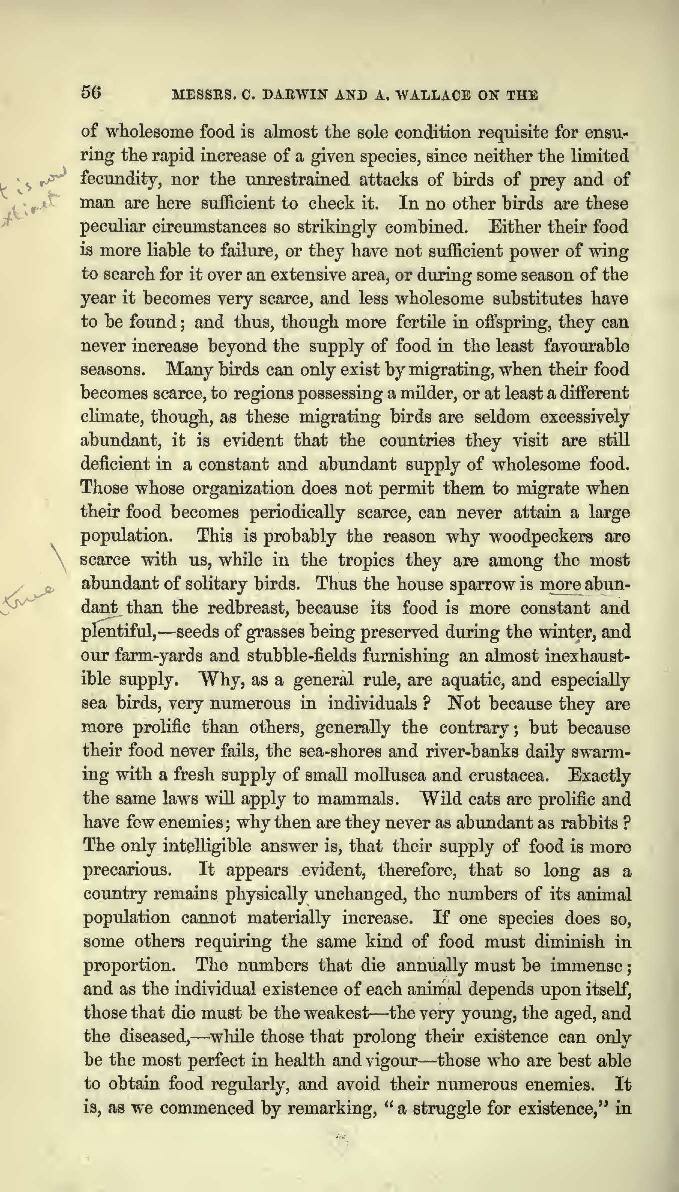of wholesome food is almost the sole condition requisite for ensuring the rapid increase of a given species, since neither the limited fecundity, nor the unrestrained attacks of birds of prey and of man are here sufficient to check it. In no other birds are these peculiar circumstances so strikingly combined. Either their food is more liable to failure, or they have not sufficient power of wing to search for it over an extensive area, or during some season of the year it becomes very scarce, and less wholesome substitutes have to be found; and thus, though more fertile in offspring, they can never increase beyond the supply of food in the least favourable seasons. Many birds can only exist by migrating, when their food becomes scarce, to regions possessing a milder, or at least a different climate, though, as these migrating birds are seldom excessively abundant, it is evident that the countries they visit are still deficient in a constant and abundant supply of wholesome food. Those whose organization does not permit them to migrate when their food becomes periodically scarce, can never attain a large population. This is probably the reason why woodpeckers are scarce with us, while in the tropics they are among the most abundant of solitary birds. Thus the house sparrow is more abundant than the redbreast, because its food is more constant and plentiful,—seeds of grasses being preserved during the winter, and our farm-yards and stubble-fields furnishing an almost inexhaustible supply. Why, as a general rule, are aquatic, and especially sea birds, very numerous in individuals? Not because they are more prolific than others, generally the contrary; but because their food never fails, the sea-shores and river-banks daily swarming with a fresh supply of small mollusca and crustacea. Exactly the same laws will apply to mammals. Wild cats are prolific and have few enemies; why then are they never as abundant as rabbits? The only intelligible answer is, that their supply of food is more precarious. It appears evident, therefore, that so long as a country remains physically unchanged, the numbers of its animal population cannot materially increase. If one species does so, some others requiring the same kind of food must diminish in proportion. The numbers that die annually must be immense; and as the individual existence of each animal depends upon itself, those that die must be the weakest—the very young, the aged, and the diseased,—while those that prolong their existence can only be the most perfect in health and vigour—those who are best able to obtain food regularly, and avoid their numerous enemies. It is, as we commenced by remarking, "a struggle for existence," in
Page:Onthetendencyofspecies.pdf/12
Jump to navigation
Jump to search
This page has been validated.
56
MESSRS. C. DARWIN AND A. WALLACE ON THE
